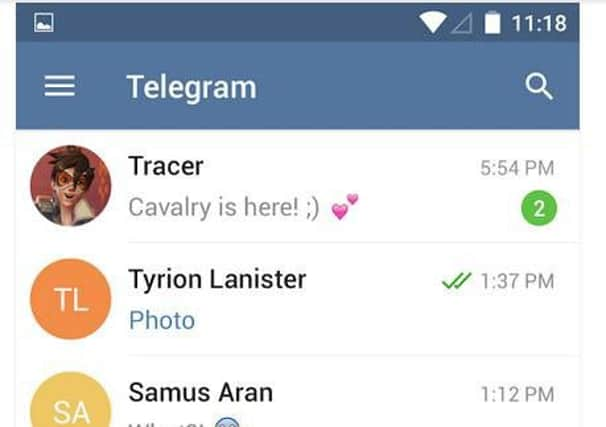Still using texts? You should send a Telegram


But that revenue stream has largely dried up. We’ve found better and cheaper ways of texting now, rendering SMS valueless. WhatsApp and Facebook Messenger were at the vanguard of new-age texting, but they too have now been supplanted by newer, more competitive providers.
All of them have the advantage of being able to send pictures, video and other data along with regular text. You can also use them to make voice calls, independent of your monthly phone allowance. They use wi-fi to communicate if it’s available, which makes them effectively free. If wi-fi is not at hand they will take mobile data from your monthly allowance – a minimal amount for text but more for pictures and more still for video.
Advertisement
Hide AdAdvertisement
Hide AdIf you’re still using SMS, or if like me you’ve found WhatsApp less reliable than it used to be, here are some alternatives...
Line is now the biggest competitor to WhatsApp, offering text, voice, picture and video messaging. Unofficial figures suggest that when it does draw on your mobile data it uses less than WhatsApp. There are Line apps for just about every type of phone, all of which are free to download. But Line is keen to push the sale of character-driven icon sets, or “stickers”, to impressionable users – so install the service with caution on your children’s phones.
Telegram is a two year-old service originating in Russia that aims to emulate WhatsApp and improve upon it. You can, for instance, use it to send videos and other files of up to 1.5 gigabytes – though that’s an invitation to run up huge bills if either you or your recipient aren’t on wi-fi. Unlike WhatsApp, Telegram doesn’t charge an annual fee and it doesn’t carry ads.
Kik Messenger differs from Line and Telegram in not needing to know your mobile number, relying instead on a username and password to identify you. The app is free, but like Line, it offers to sell young users packs of “stickers”.
As none of the services requires cash upfront, you can try them all before deciding which you like best. My favourite – for the moment – is Telegram.